Do you give your students sentence fixing activities to complete? You know, the ones where you provide a sentence that’s written and punctuated incorrectly, and they have to fix it? Sometimes these activities are referred to as D.O.L. (Daily Oral Language). D.O.L., sentence fixing, or whatever you want to call it is a pretty common way to teach grammar. I have done these exercises with my kiddos, and I actually remember doing lots of them as a student, too. But…bad news, friends! Sentence fixing is not an effective way to teach grammar!!
Let me back up a little here. This past summer, I finished packaging my writing curriculum series for first grade and for second grade. My writing units follow a writing workshop model. Each unit focuses on a single genre, and students are often free to choose their own writing topics.
I know that some other writing workshop programs really don’t advocate teaching grammar at all, because they don’t view it as an “authentic” part of writing. Which, honestly, I don’t completely agree with. I am not a grammar junkie (it’s not my favorite thing to teach), but the fact is that kids need practice with grammar skills. (By the way, when I say grammar, I am lumping together teaching kids about capitalization, punctuation, parts of speech, etc.)
I am all about integrating grammar instruction into authentic writing activities. For example, if you’re teaching kids how-to writing, teach them how to include commas in a list of supplies that the reader will need. However, a minilesson here or there isn’t really enough to give kids the extended practice that they need to master a skill. So when I created my first and second grade writing units, I knew I wanted to include grammar exercises to reinforce the skills taught in the minilessons.
When I wrote the grammar exercises, I included lots of sentence fixing practice. Now, I’ve gotta be honest here – the little reading specialist alarm that I have in the back of my mind was going off while I did this. I knew that sentence fixing wasn’t the very best way to teach grammar, but I wasn’t entirely sure what else to do instead to help supplement the grammar lessons in my writing series. So I included sentence fixers in my grammar activities, and I published the units.
Fast forward a bit to my district’s reading specialist professional development at the beginning of the school year. One of the topics we touched on was (can you guess?) sentence fixing! The literacy director in my district (who I really respect and admire) shared this document with us. It’s all about why traditional grammar exercises (like sentence fixing) do not work, and what we should be doing instead. Here are my major takeaways from that document and what the literacy director said:
– Sentence fixing is not effective for several reasons. First, we want to show our students examples of good writing, not bad writing! Second, it’s not engaging. Third, research shows that using sentence fixing activities does not result in students applying these same skills in their own writing (and that’s what really counts, right?!).
– Students need to see examples of good grammar, good use of capitalization, and good punctuation, and they need opportunities to apply these skills to their own writing. We need to point out how and why published authors choose punctuation marks in the context of real texts. We need to talk to them about why published authors follow grammar rules and what effect it has on us, as readers. And we also need to give our kids opportunities to go try out grammatical structures, different punctuation, and capitalization in their own writing. Basically, kids need to see and use grammar in real contexts.
Okay. So as you can imagine, I started feeling a teeeensy bit guilty about all those sentence fixers in my writing units. Our literacy director did point out, however, that doing some sentence fixing is completely fine – we just need to show kids examples of correct spelling, punctuation, and grammar before we ask them to fix incorrect usage.
With that in mind, I’ve revised the grammar/language arts exercises in all of my first grade and second grade writing units. I still do have some sentence fixing in those exercises, because I know that kids do need to practice their editing skills. However, I created a format that forces kids to take note of examples of correct usage in correctly written sentences, and only then are they asked to fix an incorrectly written sentence. Here’s an example from Second Grade Unit 5:
This particular activity is timed so that the day after you teach a minilesson on possessives, this grammar exercise follows up with further practice. This is intended to honor the idea that kids need to practice grammar skills in context (i.e. during the minilesson and writing workshop time) but also provides them with follow-up reinforcement. In addition to this type of exercise, I’ve also included a variety of quick activities that are designed to be engaging and cover Common Core language skills. These exercises (like “find the pattern”) also expose students to examples of well-written sentences. There is a quick daily grammar exercise for each day in each unit, which is more than enough for the entire school year!
So, if you own one of my first or second grade units (or the bundles), you will see that when you log into your Teachers Pay Teachers account and click on “My Purchases,” there is red text below the unit(s) that says “Newly Revised Re-Download.” This just means that you can redownload the unit for free and check out the changes I’ve made (and I certainly hope you will consider using the new activities with your students!).
Thanks for bearing with me; I know this was sort of a long post! If you have any comments or ideas to share about how you make grammar instruction fun and authentic for your students, please comment below.
Happy teaching!


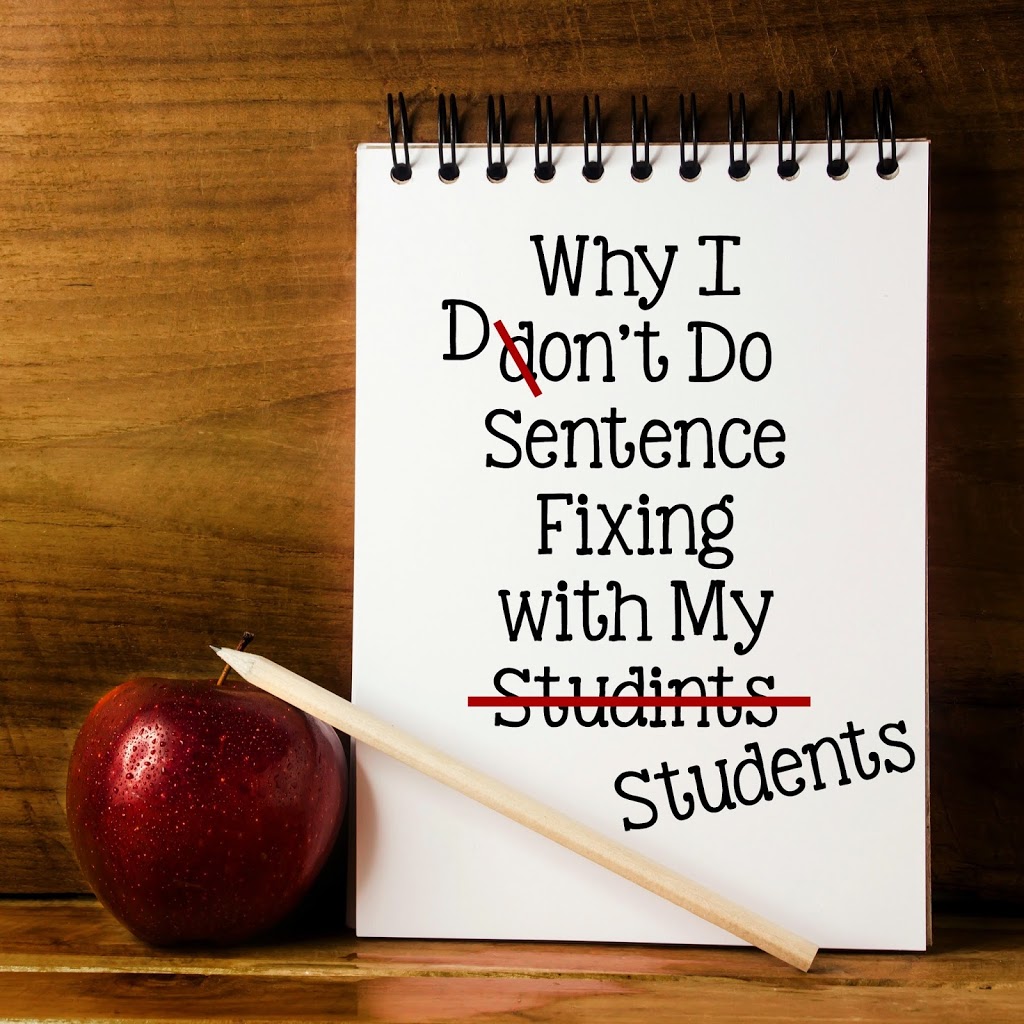

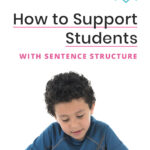


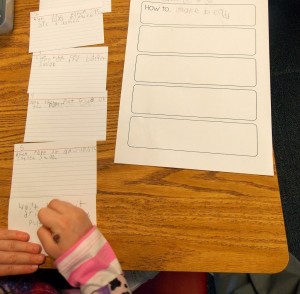

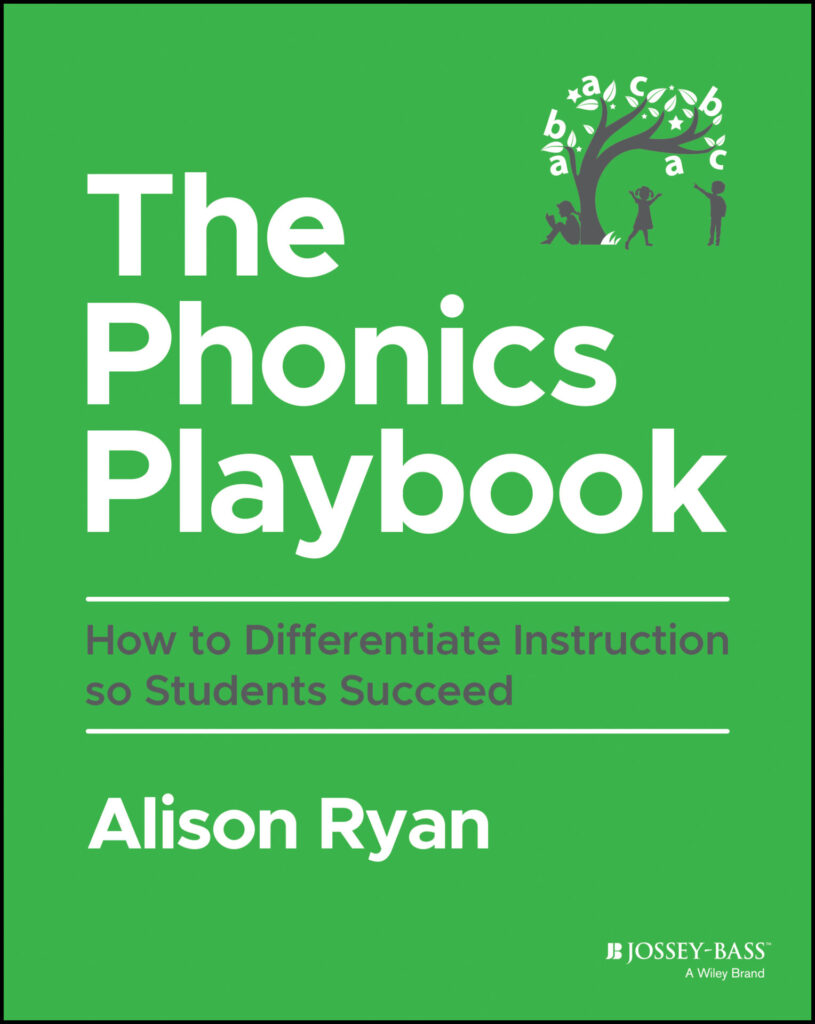
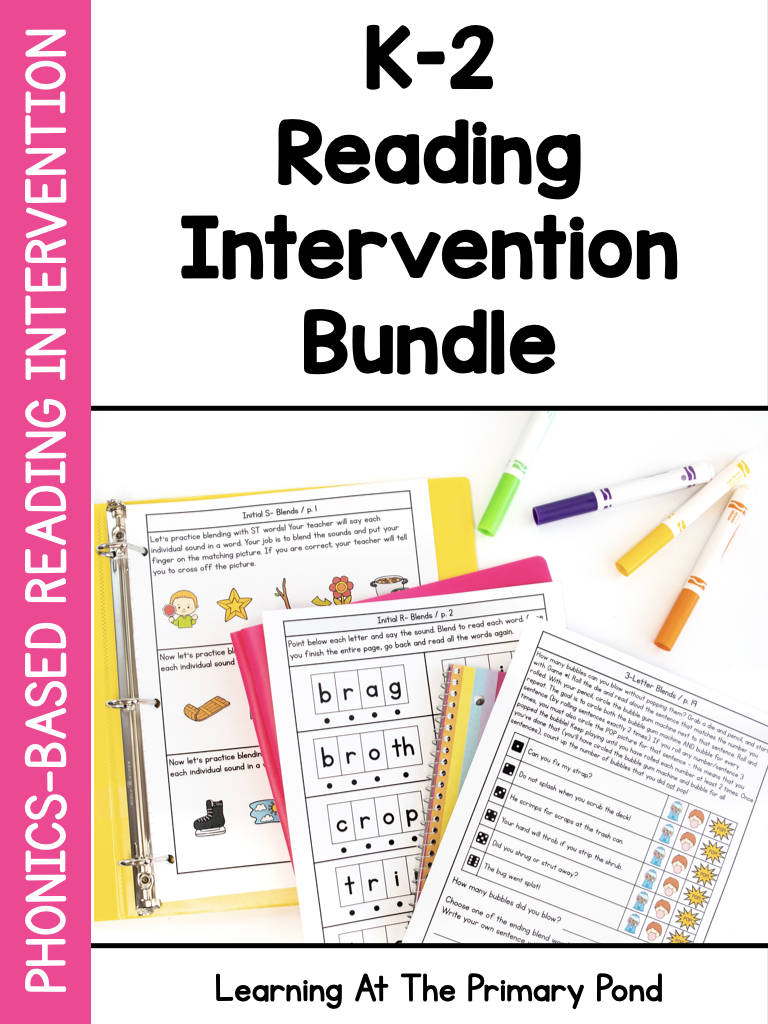
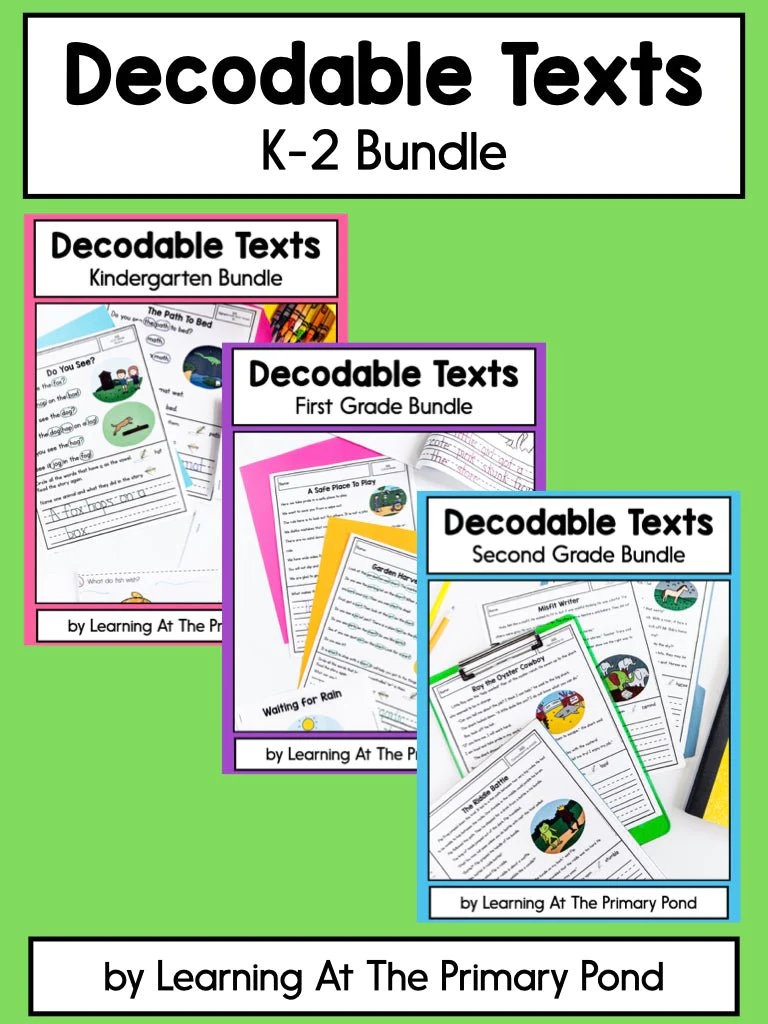

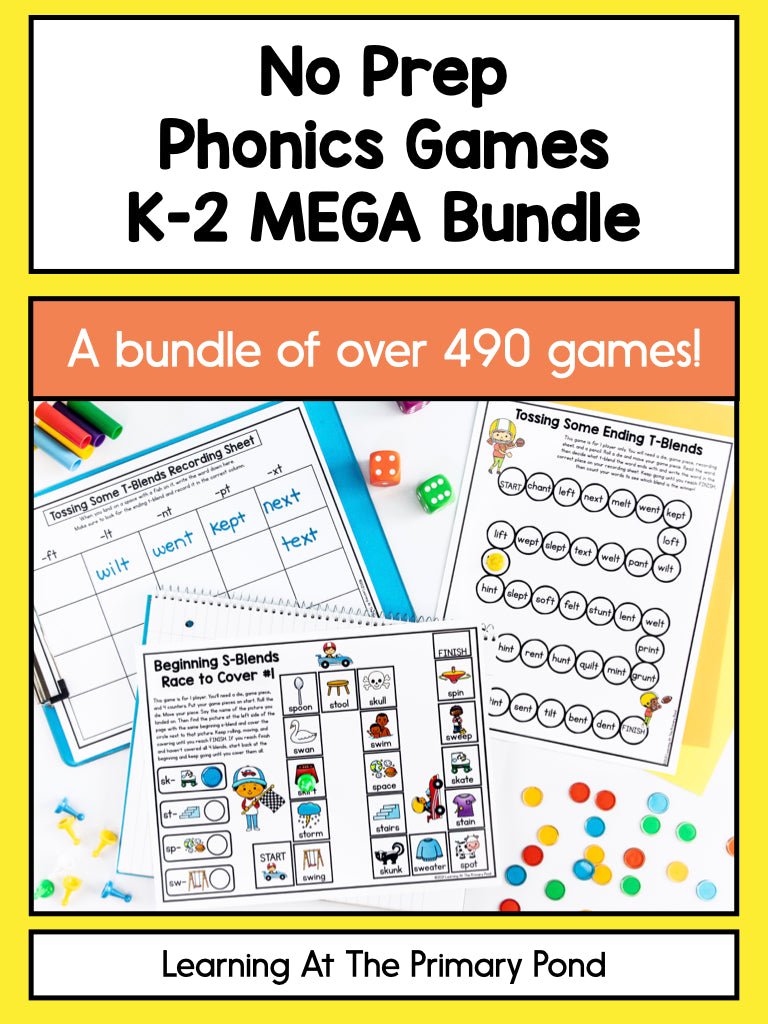
I happened across your post via Pinterest. I so agree regarding the practice of sentence fixing and having students see an incorrect version. I’ve done it, but always made me uncomfortable. Thank you for sharing this ingenious alternative!!
Linda
Primary Inspiration
When I click on the download button I keep getting an error message…
Hi Vicki! Is this the document you were looking for? http://tandfbis.s3.amazonaws.com/rt-media/eoe/whitepapers/ruday_wp_v4_final.pdf
Alison
I really appreciated your insights. I am currently about to finish my masters in curriculum and instruction. I did my thesis on peer editing in first grade writing. While I did do some sentence fixing activities to teach editing, it was not my main focus. I did a combination of fixer sentences as well as good example sentences. I would be interested to know your thoughts on students editing their own work, or each other’s.
Thanks for your comment, Karla! Your thesis sounds interesting – have you ever blogged about it? I’d love to read it! I have had a lot of success with having kids help each other edit their writing – I’ve found that they are often blind to their own errors (so are we as adult writers). One of my “rules” is that they cannot write on each others’ papers – I have them use small sticky notes to mark down any changes to be made, and then it is the author’s choice to make them or not. Here’s a post I… Read more »
Your article is very helpful. Thanks.
Do you have other specific pieces of research you could share on this topic? Your third. States that research shows that sentence fixing activities do not have an impact. I’m looking for more official research studies that supplrt thT finding. To what are you referring? Any help you could offer would be great! Thanks!
Hey Jenn! Maybe check out this article and its bibliography? https://tandfbis.s3.amazonaws.com/rt-media/eoe/whitepapers/ruday_wp_v4_final.pdf
Alison
I think there are a lot of English language skills that should be taught explicitly. Grammar being one. When I taught 5th grade, I used a grammar text book at ELA. However, in the morning, we did a quick D.O.L. and corrected it. It gave us an opportunity to learn editing skills, language conventions, and then they had the opportunity to put this learning to use in the Writer’s Workshop time. Using D.O.L. to teach grammar is a ridiculous notion. I don’t know from where it came. However, to throw out all D.O.L. practice might be like throwing the baby… Read more »